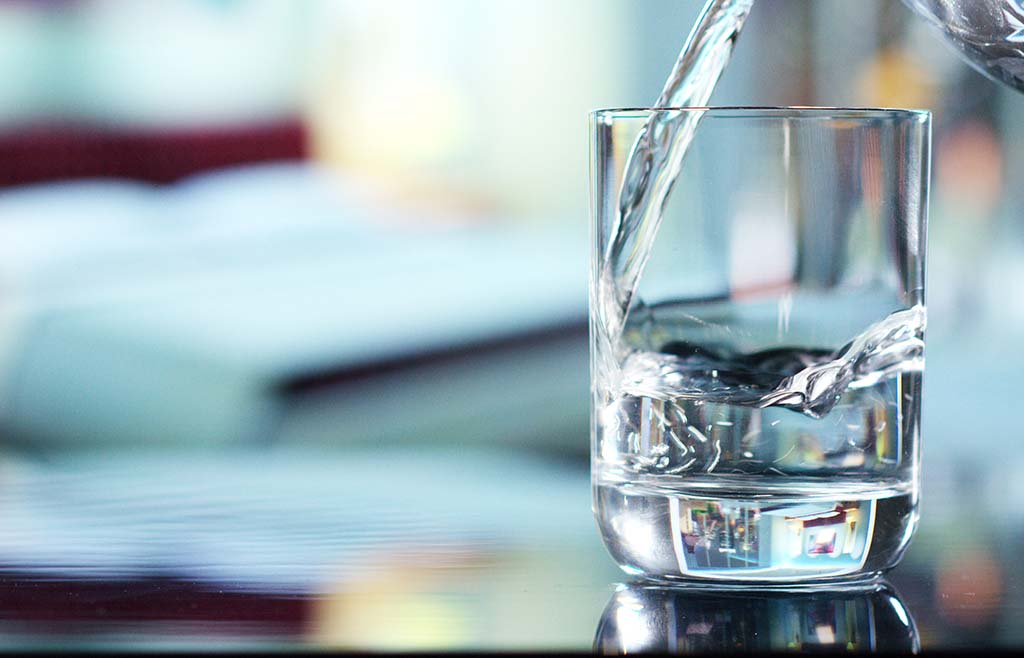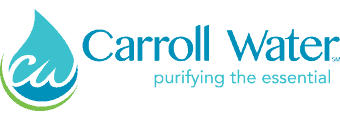Water is one of the most essential resources in our homes. From the first morning shower to the water we drink, use in meal preparation, or wash our clothing, water impacts virtually every aspect of our daily lives. But not all water is clean and pure. Most water arriving at our homes from wells or municipal sources may meet basic safety standards. However, it can still contain impurities that not only affect the taste and quality but also potentially impact our health.
- How Can I Better Understand What Is In My Water?
- How Does a Whole Home Water Filtration and Treatment System Work?
- Homeowner FAQs
- A Six-Step Whole Home Remediation Strategy for Safe and Pure Water
- How Much Does a Whole Home Water Treatment System Cost?

For homeowners who have a strong desire to ensure safe and pure water for their families and guests, investing in a whole-home water filtration and treatment system isn’t just a luxury. They view it as an essential action they can take to ensure access to pure, safe, and clean water at all times.
When considering such a significant investment, however, it’s crucial to make an informed choice. Not every water filter and treatment system on the market will serve your specific needs, and understanding the key considerations is the first step towards purchasing a system that guarantees clean and safe water for your household. This homeowners guide will provide you with the knowledge and insights to inform your decision in buying a whole home water filter and treatment system.
How Can I Better Understand What Is In My Water?
Before selecting a water treatment system, you should know what’s in your water through a comprehensive water analysis. The types and levels of impurities vary by region, and even by neighborhoods within the same geography. Some contaminants common in the Mid-Atlantic region, for example, include heavy metals, chlorine, iron, PFAS/PFOS, bacteria, and nitrates.
 Water filtration can remove many contaminants like ferric iron (visible) or ferrous iron (transparent).
Water filtration can remove many contaminants like ferric iron (visible) or ferrous iron (transparent).
Our water technicians at Carroll Water have years of experience serving the Mid-Atlantic region and are trained to conduct a free analysis of your home water supply. As they conduct the analysis they will share the results and explain the types of contaminants or other water safety considerations. There may be instances when your water sample is sent to a local lab for testing so the technician can fully diagnose your water purity.
Once you have the full analysis, expert water technicians can guide you through the decisions that go into selecting the type of water filter and treatment you need.
 Our technician reviews the details of your water analysis to design the best plan for your home.
Our technician reviews the details of your water analysis to design the best plan for your home.
How Does a Whole Home Water Filtration and Treatment System Work?
In its simplest form, a whole home water filtration and treatment system plays a crucial role in removing contaminants from water, thus providing safe, clean, and palatable water for household use. However, the most effective systems are configured by expert water technicians to ensure they solve all of the issues uncovered in your home’s water analysis.
Water filtration and treatment systems use various methods and technologies to remove contaminants and improve the quality of water. Let’s take a closer look at a basic understanding of how common filter and treatment systems work:
Physical Filtration
This is the most basic form of water purification. A physical filter works like a sieve, removing larger impurities from the water as it flows through the system. This includes sediment, dirt, and other particulate matter.
Chemical Filtration
This process involves passing water through an active material that removes impurities chemically as they pass through. One of the most common types of chemical filtration is activated carbon, which can remove organic compounds, chlorine, and its by-products, thereby improving the taste and odor of water.
Reverse Osmosis (RO)
RO systems work by forcing water under pressure through a semipermeable membrane. This process can effectively remove a wide range of contaminants, including dissolved solids, salts, lead, mercury, and other heavy metals. Some RO systems also include additional stages of filtration to remove other contaminants.
Ultraviolet (UV) Disinfection
This is a non-chemical process where water is treated with ultraviolet light to kill bacteria, viruses, and other microorganisms. UV treatment is often used in combination with other filtration methods for a comprehensive water treatment solution.
Ion Exchange
This process is typically used in water softeners to remove hard water minerals like calcium and magnesium. In ion exchange, these minerals are replaced with other ions, typically sodium or potassium, thus softening the water.
Homeowner FAQs
Which water filters remove the most contaminants?
Reverse Osmosis (RO) systems are generally recognized as some of the most effective water filters for removing a broad range of contaminants. These systems can remove heavy metals, dissolved solids, salts, and even certain microorganisms. Additionally, when combined with activated carbon filters and UV disinfection, RO systems can deliver some of the purest water available from home treatment systems.
Are All Whole Home Water Filters the Same?
No, all whole home water filters are definitely not the same. There is considerable variation in their design, capabilities, technologies used, and the types of contaminants they can remove. Some key factors that differentiate whole-house water filters include:
- Type of filtration technology
- Capacity on the volume of water they can hold and the speed
- Contaminants removed vary from physical, chemical, or biological
- Maintenance requirements and frequency
- Cost can vary widely
- Certification from independent organizations to test filter efficacy
What Is the Best Brand of Water Filter?
EcoWater Filters and Treatment Systems are regarded as one of the best brands in the industry for many reasons:
- Innovative Technology: EcoWater systems often incorporate features like Wi-Fi-connected smart technology that allow homeowners to monitor and control their water systems remotely.
- Broad Range of Solutions: Since EcoWater offers a diverse range of products, authorized dealers like Carroll Water can tailor the best solution to the specific needs of the home.
- Quality and Efficiency: EcoWater systems are designed with both performance and efficiency in mind. This also ensures that the energy and water-efficient designs are most effective in treating a variety of water issues.
- Certifications: Many of EcoWater’s products are certified by reputable independent bodies such as NSF International or the Water Quality Association, ensuring they meet scientific rigorous quality and performance standards.
- Sustainability: EcoWater’s commitment to environmentally-friendly practices includes initiatives aimed at reducing water usage, utilizing efficient salt usage in their softeners, and recycling efforts for their equipment at the end of its lifespan.
- Full-Service Support and Warranties: Authorized EcoWater dealers like Carroll Water can provide professional installation services, regular maintenance, and reliable support on EcoWater systems. We also offer robust warranties so that you can remain confident in your investment.
A Six-Step Whole Home Remediation Strategy for Safe and Pure Water
A whole home remediation plan for water safety and purity requires a strategic and comprehensive approach. We advise all of our customers to follow this step-by-step strategy to ensure you’re getting the cleanest, safest water possible in your home:
- Water Analysis: Reveals contaminants and their concentrations. The presence and concentration of contaminants can vary significantly so there is no one-size-fits-all approach. Each remediation plan is tailored to the specific needs of your household.
- System Selection: The system you select should be capable of effectively removing or neutralizing the identified contaminants. This may involve filtration, water softening, disinfection, or a combination of these and other processes.
- Professional Installation: Qualified professionals, like those at Carroll Water, should handle the installation of your treatment system. Depending on the system, additional electrical or plumbing work may be required, which should also be carried out by a certified professional to ensure optimal performance and safety.
- System Monitoring: Regular monitoring is key to ensure it’s working effectively and maintaining the quality of your water. EcoWater systems offer digital monitoring features and we can show you how easy they are to use.
- Regular Maintenance: All water treatment systems require some level of maintenance to keep them operating efficiently. Our technician will advise you on the frequency and best practice maintenance you can follow. We also offer service plans to ensure your system is always performing to your satisfaction.
- Testing and Adaptations: Periodically we recommend you repeat your water analysis especially if your municipality or local area has reported water issues. We can also adapt your current system if your water supply changes or technology advances to offer new options.
How Much Does a Whole Home Water Treatment System Cost?
The cost of a whole home water treatment system can vary widely due to several influencing factors. A typical range might be anywhere from a few hundred to several thousand dollars, depending on several details, including:
- System Type, Size, and Complexity: The cost can vary significantly depending on whether you’re investing in a single water filter product or a designed system that combines several treatment technologies to solve all of your water issues.
- Quality and Brand: Systems from reputable brands, such as EcoWater, represent a wise long-term investment in your home to ensure healthy, clean water for your family. While the cost to own may be more upfront compared to cheaper alternatives, EcoWater’s superior performance and extended lifespan translate to lower maintenance, repair costs, and fewer replacements over time, offering the best value in the long run.
- Installation Costs: Working with expert water technicians will ensure that your installation runs smoothly according to an agreed-upon plan and timeline.
- Maintenance Costs: Over time you’ll replace filters, add salt to water softeners or replace UV lamps. So selecting the most efficient brands are critical for longevity.
- Energy Costs: Selecting systems like EcoWater will ensure you minimize energy costs.
So many of our customers are confident that investing in a quality water treatment system is highly cost-effective in the long run. Not only does it provide them with a reliable supply of clean, safe water, but it can also help protect their appliances and plumbing from damage due to hard water or corrosive elements. All of this adds up to saving money on repairs and replacements.
Most importantly, they also have the peace of mind they are keeping their family safe and healthy, which is invaluable.
If you’re concerned about what contaminants may be in your home water supply, contact us today so we can get started with your free water analysis.




